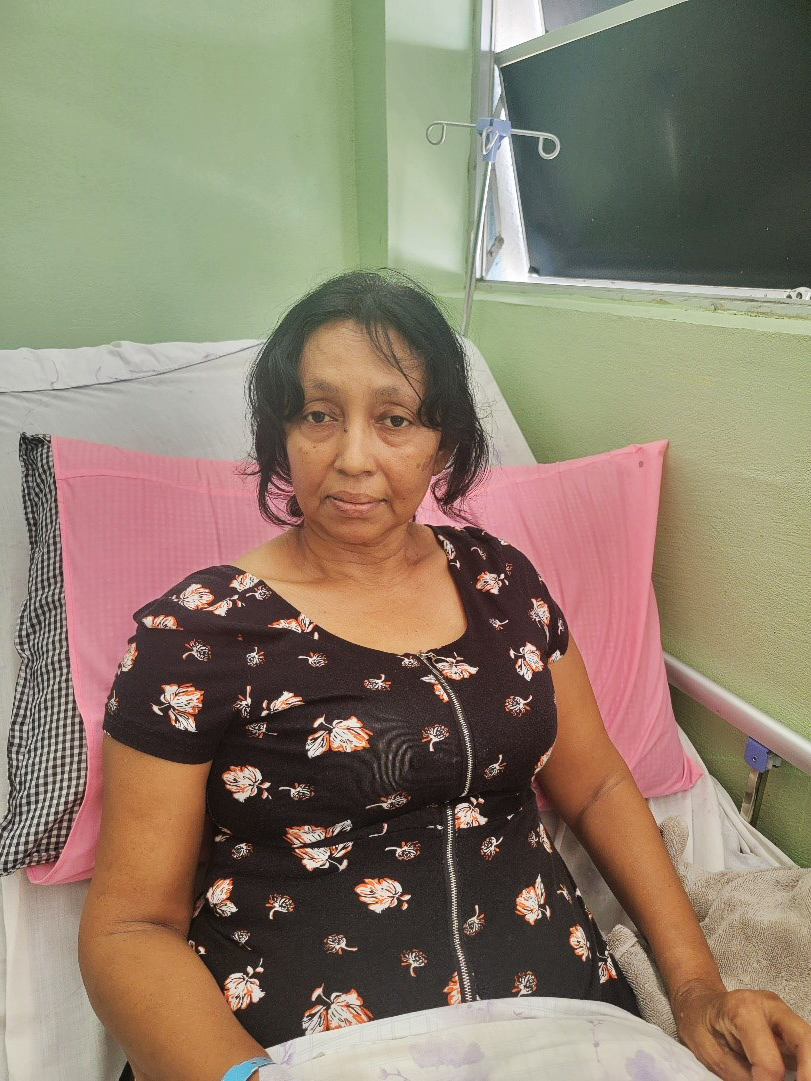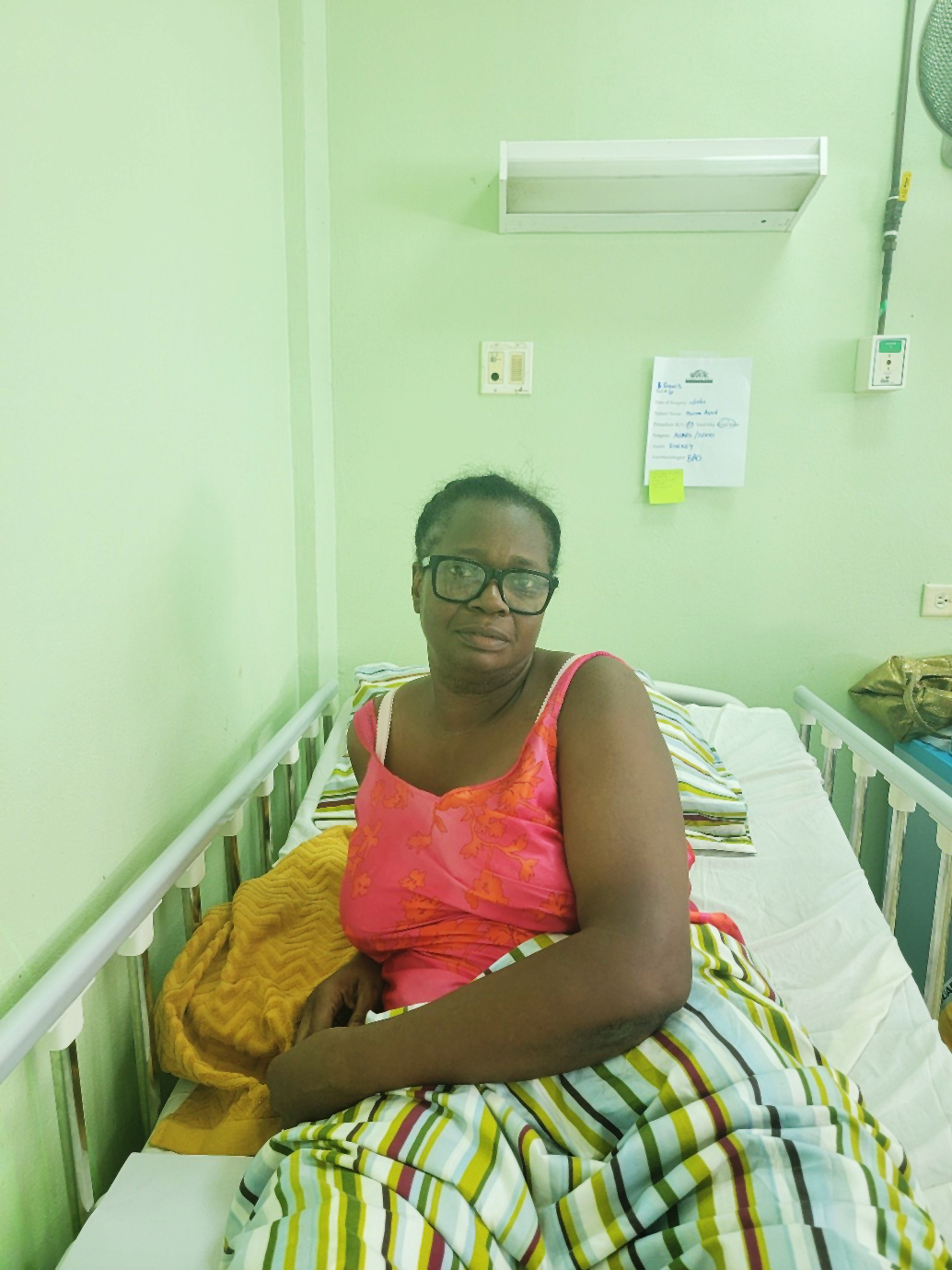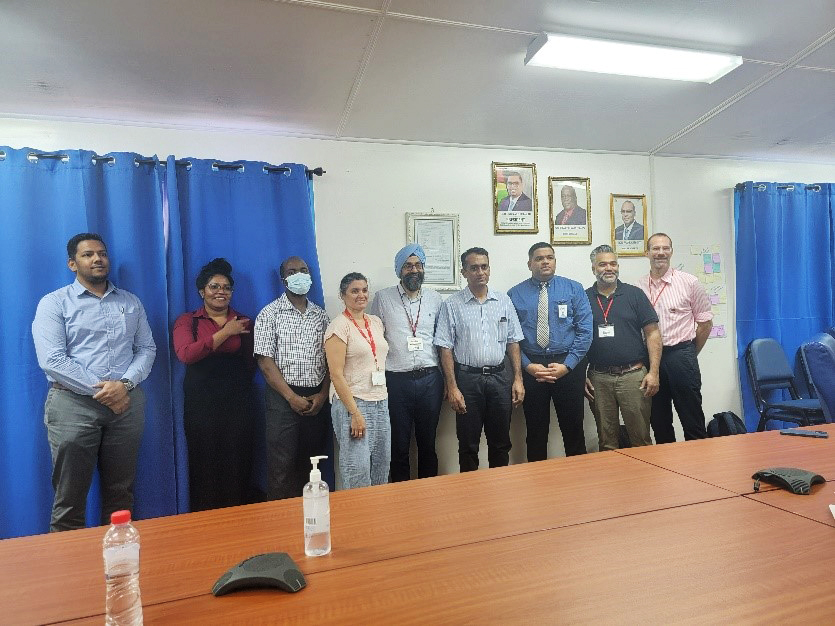By Laurel Sutherland
For ten years Merna Agard, 58, suffered from knee arthritis but up until two months ago the symptoms were bearable. Her greatest fear as her condition worsened was that she would soon lose her independence.
“I don’t feel comfortable being dependent on anybody,” Agard admitted to Stabroek News yesterday. Aside from having to become dependent on her relatives should the worse happen, Agard feared that her illness would result in her having to leave her job as a Technician at the Georgetown Public Hospital (GPHC). Her outlook on life was bleak.

She passed on two knee replacement surgeries in the past and was beginning to regret the decision. Then, last Thursday, she was informed that she was selected to undergo a bilateral knee replacement surgery to be conducted by a team of surgeons from not-for-profit and volunteer medical service, Operation Walk Maryland – a US organization that provides free surgical treatment for patients in developing countries.
Agard was elated and after undergoing surgery last Friday, she was discharged from the hospital yesterday.
Operation Walk Maryland conducted two prior outreaches in Guyana. According to Robbie Rambarran, the Chief Executive Officer of the GPHC, 50 patients selected from all regions of the country benefited from joint replacement surgeries within a four-day period. Five patients had replacement done on both knees. Fifty-five cost-free surgeries were conducted.
In total, Operation Walk has conducted 160 surgeries since beginning its outreach programme in Guyana. According to GPHC’s Head of Orthopaedics, Dr. David Samaroo, all the replacement surgeries were successful. Most of the patients were discharged within 24 hours with only two – Agard and another, Donna Rajkumar – discharged yesterday.
Each surgery would’ve cost an estimated $2 million. The CEO thanked the organization for helping reduce GPHC’s backlog for joint replacement surgeries.
“We are grateful because we do an average of two surgeries per week so having patients benefitting is quite an achievement,” Rambarran said. He added that it is his hope that this type of service can be expanded to regional hospitals around to the country so that patients wouldn’t have to travel to Georgetown to undergo surgeries.
According to Samaroo, a team from Operation Walk would return in four or six months to check on the patients and ensure the recovery process is going well.
The Operation Walk team, led by Dr Paul Khanuja, also had educational sessions with doctors from the GPHC.
“We have been fortunate to have this collaboration with the Georgetown Public Hospital. The impact we have made has just been a wonderful experience and opportunity for us to see how much the hospital is capable of doing,” Khanuja said.

Rajkumar, who also benefitted from a bilateral knee replacement surgery, commented that she was overjoyed when she was told that she would be a beneficiary of the outreach. She had sought to have surgeries done once before but after finding out how expensive it was decided against it.
“I would like to thank each and everyone who was responsible for me [getting the surgery]” she said.
She was also suffering from knee arthritis for ten years.
Operation Walk Maryland was established in 2007 by Harpal S. Khanuja, MD and Maria Khanuja, CRNP in the US state of Maryland and is supported by a team of colleagues and volunteers.










